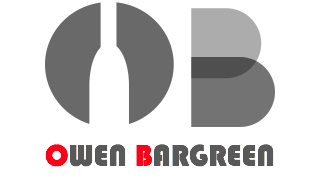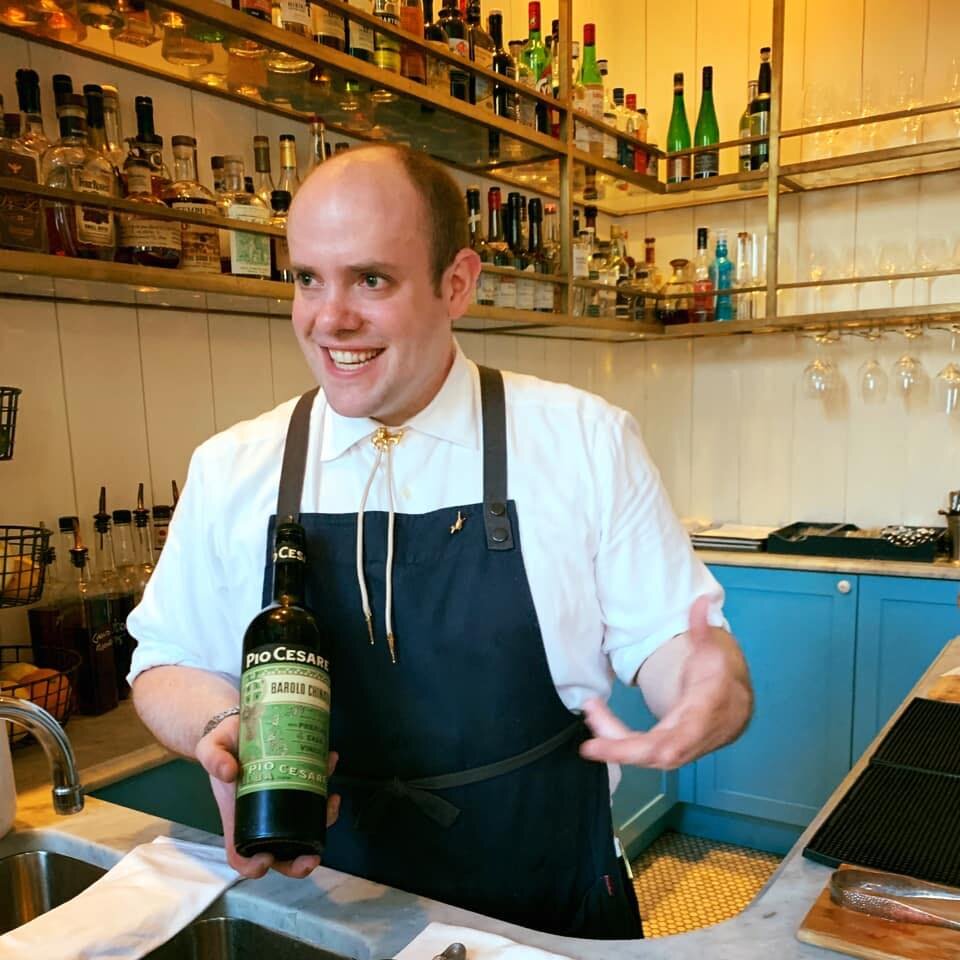We have a big interview with you today at Washington Wine Blog as we catch up with the one newest Master Sommeliers, local Seattleite Nick Davis. Nick recently passed the Master Sommelier exam, one of the hardest exams to pass in the world. Nick is an Eagle Scout who is also a University of Washington alumni, from the School of Music. As the founder of the wine education and hospitality company Medium Plus, Nick is one of the nicest, most down to earth guys you will find in the wine industry. It is my great pleasure to share Nick’s journey in wine. Here is my interview with Master Sommelier, Nick Davis.
WWB: How did you know that you wanted to be a sommelier?
ND: I have grown up being a goal-oriented person. When I was in middle school and high school, I was very involved in Scouting, which eventually led to Eagle Scout. That was my first ten-year achievement, and I really enjoy those multi-year goals because they include layered benefits. Aside from the hard skills acquired, there are also those meta-skills of determination and perseverance, which are required to overcome struggles and challenges.
I started in the bar and restaurant industry after graduating from the University of Washington. My degree was in Jazz Bass performance, which I still have a passion for, although during my senior year I became fascinated with cocktail history and technique. From there, I worked behind bars until my time at Canlis, where I was mentored by the wine team, which sparked my path into the sommelier world.
Most of my education in restaurants has not actually been about wine. Being a sommelier is more about hospitality and how we serve guests, which might include wine and cocktail know-how, but is really more about taking care of people. Outside of technical service points and knowledge, what really counts is a sense of warmth and caring.
Following my time at Canlis, I worked in other bars and restaurants, and then founded my own company Medium Plus, which focuses on special events and wine education. I stepped away from the restaurant floor for a period to learn about business development, but have since returned, in addition to projects with Medium Plus. My second company launched earlier this year, Unicorn Imports, with an initial focus on grower Champagne.
With these big projects, whether in business or studies, the process is really where the fun is for me. Of course the end result is fantastic, but it's the multitude of steps beforehand where all the energy is found. A lot of that process includes patience and hope, but it's like planting a seed that will eventually grow and bloom. My favorite part is the planting and cultivating; once the bloom happens, it's time for the next challenge.
WWB: Can you describe your road to passing the Master Sommelier exam?
ND: Well, I will answer that first by saying that my focus is never about passing an exam. My intention is more about diving really deep into a topic, and looking at it from many angles, with the final result a function of those hundreds or thousands of hours of work beforehand.
Being on the floor and developing a career in service is the biggest part of it. This pursuit is all about service and hospitality, and there's no way to fake that experience when confronted with an exam. Engaging with a community of others who are also ultra-passionate is essential, including those who are both earlier and farther along in their development.
In terms of focused study techniques, I recommend approaching each topic from as many perspectives as possible, using multiple source materials. For example, when studying Champagne, check out the entries in the Oxford Companion, Wikipedia, GuildSomm, producer and importer websites, and topic-focused books, such as those by Tom Stevenson and Peter Liem. Memorizing data is the last priority; I'm more hungry to find context, and the best way to do that is through a diversity of perspectives.
WWB: How did you decide to start Medium Plus? (mediumplus.com)
ND: I have been interested in creative projects since I was a little kid, and have always wanted to
make something of my own. That point arrived when I passed they Advanced Sommelier exam, and I dove into developing a business, without a real plan or focus in place. Even now there isn't a sole direction to M+, it's more of an umbrella for whatever I want to do, whether that be online wine retail, large events like film premieres, or digital platforms for student education.
As with wine studies and other goals, business ideas take a lot of perseverance and dedication, and I've gotten things wrong a bunch of times, before feeling totally satisfied with the results. In late 2019 and early 2020, I feel excited that a number of big projects will be coming together, from years in the making.
WWB: I want to offer my heartfelt congratulations of passing the Master Sommelier exam — it is an absolutely massive accomplishment. For those who are less familiar with the exam, can you talk about what the hardest portion of the exam was for you? What were some of the biggest challenges in terms of the tasting portion of the exam?
ND: Overall, the exam is split into four sections. Verbal theory is the first section, which must be passed before moving onto the other three. Business of the sommelier, practical service, and blind tasting are the other sections. Since theory took me the most attempts, I would say that was the biggest challenge. Developing a working knowledge in the world of alcoholic beverages is required, including wine, beer, spirits, sake, and cider, executed verbally, as one would do in a restaurant environment. It's not about memorizing a bunch of data from flashcards - the real substance is in having a deep sense of context, including the ties to history and production that make these beverages possible.
From there, the business, service, and tasting sections are essentially applied theory. All of those topics tie-in together, in a big picture way. Tasting is theory that is applied deductively in the glass, and business/service is theory applied to situations in restaurants. There's no better way to study for those sections, than to work full-time on the floor for years. Whether fine dining or casual, the skills behind thoughtful hospitality and business are rather universal.
In terms of tasting, I have been doing a lot of deductive practice in a serious way for about six years. That has been an ongoing process of study, and has also been a big way that our local group of wine professionals has developed. I feel that our local sommelier community is among the strongest in the country, and I have such an appreciation and respect for those who have shared this path with me, and for those who continue to lead the multiple tasting groups here in town.
Back to the tasting exam, the biggest challenge there is in the mental space on game day. A strong deductive process will lead to a good conclusion, and it can be very hard to let that process work, while fighting against other instincts at the same time. Rather than approach the wine and immediately stick with the first instinct that arises, a better method is to slow down and accurately describe the wine, from visual to aroma, along with structure. That description will lead to a great result, if you can turn off the mental noise and just listen.
It is also hard managing the emotions that are happening on the big day, whether they be anxiety, fear, excitement or joy. During the exam, I try to take those emotions, and just set them on the table to hang out for a little while, so that I can stay cool and relaxed. Athletes and public speakers have to deal with those same feelings, and it seems to me that training for that intensity is equal in importance to the content of the event itself.
Things like karaoke, public speaking, and talking to strangers are great mental practices, for gaining comfort with intense situations. Climbing and bouldering have also been excellent for me, as those activities combine physical intensity with mental focus, along with the desire not to fall off a tall rock face.
Therapy is also a super-healthy form of self-care, and I encourage more men to explore that vulnerability, relating from my own experience. Deep feelings of self-doubt and negative thought patterns are crippling to any type of performance, including wine exams. It's curious that high achievers can struggle with self esteem, which is perhaps why we keep striving to be better, and have a hard time finding satisfaction. Sometimes though, good is better than perfect.
WWB: We are all eager to know how you have celebrated your passing of the master sommelier exam?
ND: I have really enjoyed celebrating by taking some personal time to relax, and essentially do nothing intense for a few days. My work, study, and travel schedule was really aggressive this summer, and it was a blast, but some extra chill time feels like paradise.
Some friends and I will be having a little party one of these days, and I might open up a bottle of '96 Krug that has been lurking in the cellar for a while (should be showing great).
In a way, I am cautious about having a too big of a celebration, as I don't want this moment to be the ultimate top of the mountain in my life. Yes, passing the MS exam is a huge, mega deal, but I want to take it in stride. Big Mario's and a Rainier would honestly give me the same joy, as Champagne and Ezell's. Just do both, maybe?

